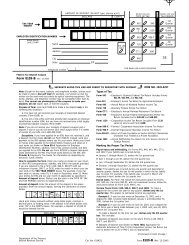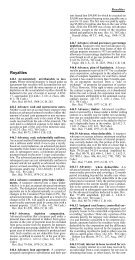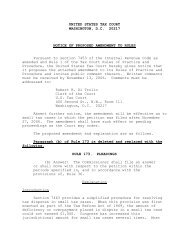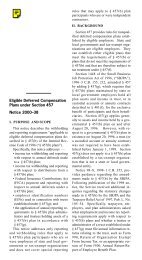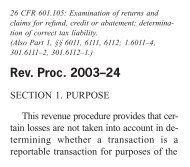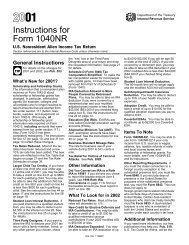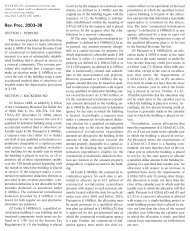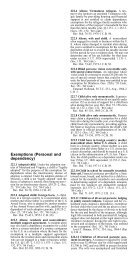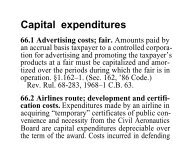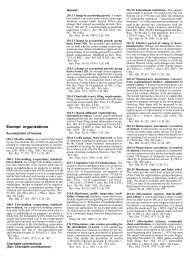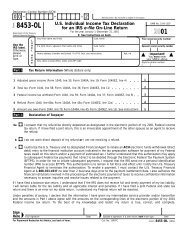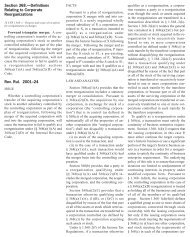Auto Dealerships - Audit Technique Guide - Uncle Fed's Tax*Board
Auto Dealerships - Audit Technique Guide - Uncle Fed's Tax*Board
Auto Dealerships - Audit Technique Guide - Uncle Fed's Tax*Board
You also want an ePaper? Increase the reach of your titles
YUMPU automatically turns print PDFs into web optimized ePapers that Google loves.
It appears clear that transactions associated with non-prime and sub-prime financing must be<br />
reported on an accrual basis. However, it is important to understand all facets of the transactions<br />
in order to properly account for them.<br />
Two separate transactions occur. First, the vehicle is sold to the customer. Second, the<br />
installment contract is transferred from the dealer to the finance company.<br />
The Tax Reform Act of 1986 repealed the installment method of reporting for dealers in personal<br />
property. Thus, the initial sale of the vehicle by the dealer to the customer must be reported in<br />
full the year the sale occurred. The total sales price of the vehicle must be reported even if an<br />
Installment agreement was executed. The dealership’s basis in the vehicle offsets the total sales<br />
price to determine the gain or loss on the sale.<br />
To determine the appropriate tax treatment of the second transaction, it must be determined if the<br />
transfer of the installment contract to the finance company by the dealer is a sale or an assignment<br />
of the contract or even a loan to the finance company. No matter what the character or tax<br />
treatment of the second transaction, however, the initial sale of the vehicle to the customer must<br />
be reported in full in the year of the sale.<br />
Sale, Assignment, Loan or Pledge to Collateralize a Loan<br />
Whether the transfer of an installment contract is a sale, assignment, loan or pledge to<br />
collateralize a loan depends on the facts and circumstances. Many of the servicing agreements or<br />
other arrangements between the dealerships and finance companies are worded in form like they<br />
are assignments or loans. However, a close review of the provisions of these agreements often<br />
reveal that in substance they are sales.<br />
The following factors tend to indicate the transfer is a sale. The number of factors applicable to a<br />
particular dealership, or the relative importance of one factor to another, must be considered in<br />
determining whether a sale has occurred, or some other type of transaction:<br />
1. The terms of the transfer are nonrecourse; i.e. the dealership is not responsible for payment<br />
of any defaulted notes or payments (often after 90 days). This is an important distinction<br />
from full recourse cases like Hansen v. Commissioner, 360 US 446.<br />
2. The transfer gives the finance company unilateral power to dispose of the note<br />
3. The dealership’s security interest in the financed vehicle was transferred to the finance<br />
company.<br />
4. The finance company receives all files and paperwork related to the customer note.<br />
5. The finance company handles all collections and other administrative actions on the customer<br />
note.<br />
19-17



